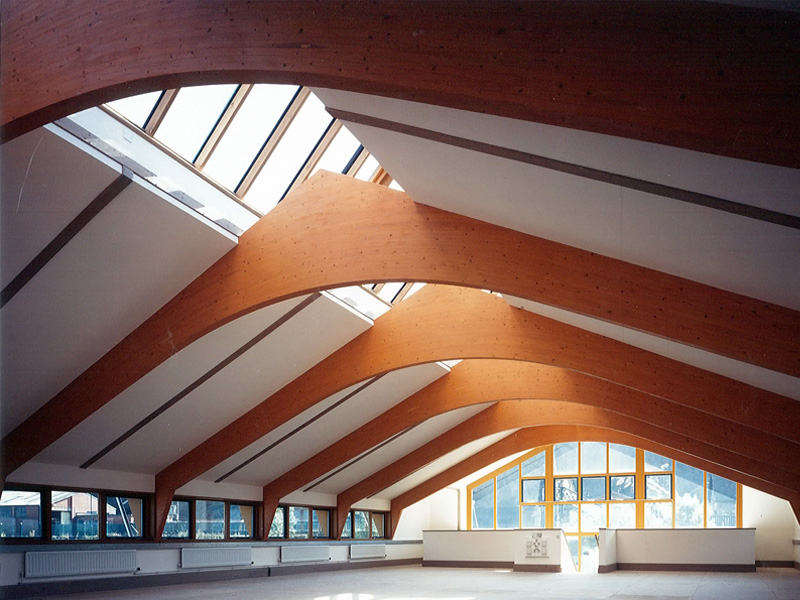Unit 1, Dyfi Eco Parck UNIT 1, DYFI ECO PARK

Project Details
£250,000 to £499,999
New Build
Practice
Watermans Lane , The Green , PEMBROKE , Dyfed , SA71 4NU , United Kingdom
Dyfi Eco Park, Machynlleth A Green Business Park for light industrial and office tenants. This development aims to minimise local and global impact, creating economical and practical buildings, enhancing the tenants' working environment in terms of health and energy conservation. The Old Station Goods yard was derelict land of low ecological value, close to existing transport and services infra-structure. Low toxicity ground contamination has been dealt with by containment, minimal excavation, no transport of material off site and 'capped' by buildings and permeable landscaping. Estate roads and service courts are formed from compacted sub-base material, cobble rubble strips with steep turf edging, minimising artificial drainage. Shrub dominated planting reinforces the robust indigenous species such as Buddleia and Dogwood acting to neutralise the toxic sub-soil and support the local fauna, with light canopy trees, such as Birch and Rowan to minimise overshadowing on this narrow site. A willow wall creates a visual acoustic and dust barrier to the SW trunk road frontage, with hazel and willow hurdle fencing or slate stone walling to the remainder. Industrial archeologocal remains uncovered on site are left in situ, incorporated into the layout. 'Cradle to grave' low impact, units up to 6,000sq.ft. built from Welsh Larch, Douglas Fir and locally sourced natural materials chosen to minimise health risks and produce very low embodied energy construction. Buildings achieve an 'Excellent' rating in BREEAM 5/93. Forms reflect a maximisation of passive solar gain, full natural daylighting, high insulation, natural ventilation and low consumption of non-renewable energies. Integrated systems of energy and waste are planned, methane generation from the local sewagenworks and photovoltaic electrical production. Project costs are less than 10% above the Board's usual allowance for an 'Advance' factory unit, costing considerably less to operate and maintain.